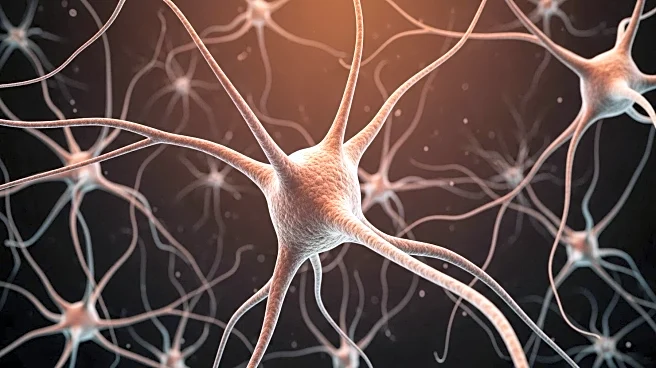What's Happening?
A recent study conducted by the University of Southern California's Center for Affective Neuroscience, Development, Learning and Education (CANDLE) has highlighted the significant impact of witnessing violence on adolescent brain development. The research indicates that exposure to violence, whether direct or indirect, can lead to a decrease in gray-matter volume in the anterior cingulate cortex, a brain region crucial for processing stress, emotional regulation, and social connection. This decrease is similar to patterns observed in individuals with post-traumatic stress disorder and those deployed in war zones. The study also introduces the concept of transcendent thinking, which can help adolescents buffer the negative effects of violence exposure by encouraging them to reflect on social issues and engage with diverse perspectives.
Why It's Important?
The findings of this study are crucial for understanding the long-term effects of violence exposure on young people and underscore the need for educational and community interventions. As adolescents are increasingly exposed to violence through various channels, including online platforms and public events, it is essential to equip them with tools to process these experiences constructively. Transcendent thinking offers a pathway for adolescents to develop resilience and adapt to challenging environments, potentially mitigating the adverse effects on their mental health and cognitive development. This approach not only supports individual well-being but also fosters civic engagement and critical thinking, which are vital for a healthy democratic society.
What's Next?
The study suggests that schools, colleges, and communities should actively promote transcendent thinking by creating safe spaces for adolescents to explore complex social issues and engage in intergenerational storytelling. Educational programs that emphasize civic reasoning and dialogue can enhance both academic outcomes and neurological resilience. As the stakes continue to rise with increasing polarization and public acts of violence, it is imperative to implement strategies that empower young people to transform their experiences into narratives of purpose and agency.
Beyond the Headlines
The implications of this research extend beyond immediate educational practices, touching on broader societal and ethical dimensions. By fostering transcendent thinking, communities can cultivate a generation of individuals who are not only resilient but also equipped to address issues of justice and fairness. This approach aligns with the civic imperative to nurture critical thinking and empathy, essential skills for navigating a complex and often divided world.












